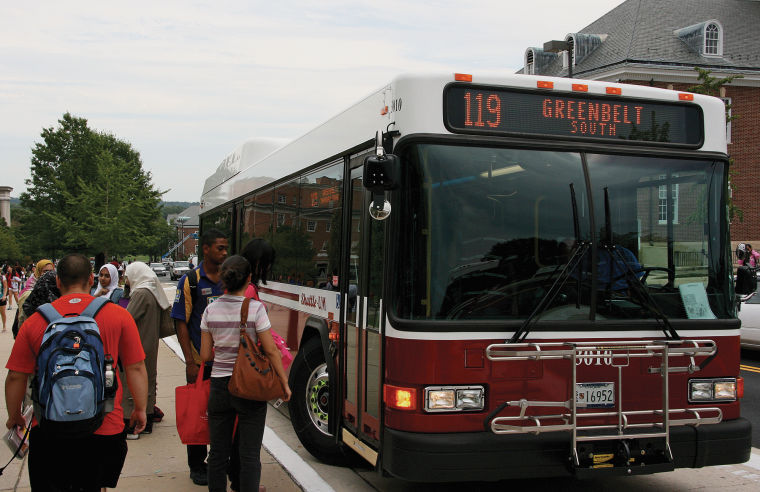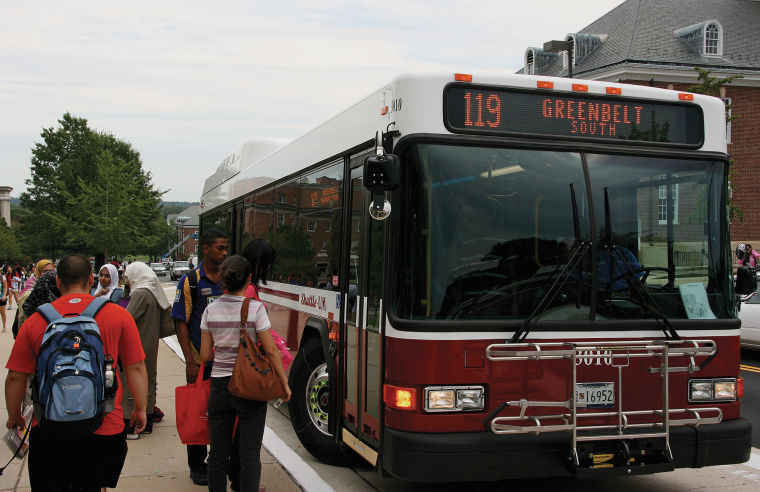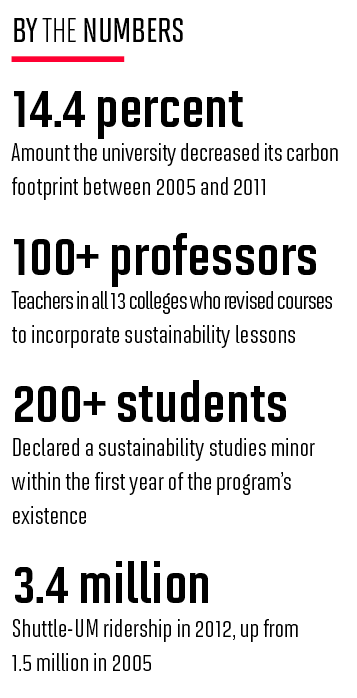The university received its highest score yet on the Sierra Club’s annual ranking of colleges based on their sustainability practices, placing 13th on Sierra magazine’s list of the nation’s “Coolest Schools” this year.
While acknowledging the university’s achievements, especially in areas such as sustainable transportation and recycling, university officials said they hope to use ratings like these to identify problem areas and push for greater environmental awareness.
“Since 2011, there’s been a lot of things that helped us improve new programs we implemented, but also participation in some of the initiatives has gone up,” said Sally DeLeon, Office of Sustainability project manager. “Both of those factors, I think, improved our score.”
The ranking is open to any four-year undergraduate college or university in the country, and this year, 162 institutions were evaluated. Sierra scored and ranked the universities based on an 11-category point system. This university scored 732.4 points out of a possible 1000, achieving perfect scores in both the “Co-Curricular” category — encompassing clubs and community service organizations — and sustainability planning, and excelling in other areas such as innovation, transportation and waste.
The widespread use of alternative forms of transportation on the campus, including biking, walking and carpooling, contributed to the university’s high score in that category, DeLeon said. According to the Department of Transportation Services’ 2012-13 report, Shuttle-UM ridership rose 18.1 percent since 2011.
The campuswide recycling rate has also increased, from 63 percent in 2010 to
76 percent in 2012, DeLeon said, and the university decreased its carbon footprint by 14.4 percent from 2005 to 2011.
The Green Office Program, which works with on-campus offices to decrease their negative impact on the environment and promotes sustainable practices instead, launched in 2011 and includes more than 120 offices.
“It seems like UMD is constantly taking steps to make the school greener,” said Leah Schleifer, a junior environmental science and policy major.
Schleifer, a former intern with Dining Services’ Green Dining program, said there are plenty of opportunities for students to volunteer, intern or otherwise do their part to make the campus greener.
“Every student seems to make some sort of an effort,” she said. “I see a lot of reusable water bottles, a lot of people on their bikes, things like that.”
The university’s sustainability council also created several work groups to improve sustainability performance in specific areas. The Sustainable Buildings and Energy Sources, Sustainable Water Use and Watershed Protection, and Education for Sustainability groups will set goals, monitor the university’s progress and create new policies.
The Sustainable Buildings and Energy Sources group will concentrate its efforts on decreasing greenhouse gas emissions, while the Education for Sustainability work group plans to make sustainability a universal learning theme, as more than 200 students have added a sustainability studies minor since its January 2012 inception and more than 100 professors are incorporating sustainability lessons into their courses.
“Everyone can participate in improving the ranking,” DeLeon said. “Find ways to commute, conserve energy, reduce the amount of waste that is generated on campus … just become involved in the sustainability movement, because there’s just so many ways, and there’s something for everyone.”
Because of some data transfer errors in 2012, the university’s ranking in last year’s Sierra report, No. 73, was not an accurate portrayal of its green reputation, DeLeon said. The most recent accurate rating prior to this year’s was in 2011, when the university was ranked No. 20, she said.
Although there are still challenges ahead, the university is implementing changes to better itself and its performance, said Scott Lupin, director of the Office of Sustainability and associate director for the Department of Environmental Safety.
“The national ratings conducted by the Sierra Club, Princeton Review and others provide colleges and universities a sense of how well they perform against similar schools, identifies common issues and goals that may be used for planning and highlights areas requiring greater focus and attention,” Lupin said.
The Office of Sustainability will release its annual progress report, which will review and lay out the sustainability accomplishments and goals for the future, this fall.
“The university has accomplished a lot,” DeLeon said. “Participation is really important at all levels, and without the involvement of everyone … we wouldn’t have scored this highly.”
eserpicodbk@gmail.com / @erin_serpico





